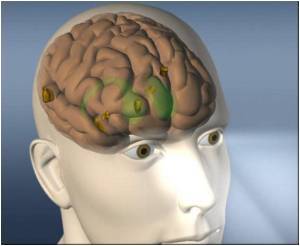
"By the year 2030, more than 60 million people worldwide will likely be diagnosed with Alzheimer's, but we are still grappling with the disease's underlying biological mechanisms," said Dr. Huang, an Alzheimer's expert at Gladstone, an independent and nonprofit biomedical-research organization. "However, with this research we've shed new light on these complex processes—and how we could modify these processes to fight this disease."
The molecular mechanisms behind Alzheimer's have long evaded scientists. Early studies found that different types, or variants, of the apoE gene—including apoE3 and apoE4—influence one's genetic risk for developing the disease. The apoE4 variant is the major genetic risk factor for the disease, while the apoE3 variant is less risky—and far more common. From among these variants, everyone inherits two—one from each parent—that provide a blueprint for making the protein known simply as apoE. Previous findings revealed a complicated interplay between apoE and another protein called amyloid-beta (Aβ), which is present in increased quantities in the brains of Alzheimer's patients, but the exact nature of this complex relationship remains unclear.
Recent research by another group found that a drug that boosted apoE protein levels also reversed the build-up of Aβ in mice genetically modified to mimic Alzheimer's. So some scientists have theorized that boosting apoE levels could be beneficial in slowing the disease's progression in humans, and several groups have begun to explore this therapeutic strategy.
In this study, Dr. Huang and his team tested this idea. They genetically modified mice to have either human apoE3 or apoE4 and then monitored them for any subsequent build-up of toxic Aβ in their brains as they aged.
"We thought a straightforward relationship existed between apoE protein levels and Aβ, and that boosting apoE levels in these mice would promote—not halt—the build-up of Aβ," explained Gladstone Postdoctoral Fellow and lead author Nga Bien-Ly, PhD.
Advertisement
"Our findings suggest that reducing levels of proteins produced by either apoE3 or the apoE4—rather than raising them—could be key to lowering Aβ build-up in the brain," said Dr. Huang, who is also an associate professor of neurology at the University of California, San Francisco, with which Gladstone is affiliated. "We hope that our research could spur new therapies that successfully combat Alzheimer's at the molecular level—putting us one step ahead of this deadly disease."
Advertisement














